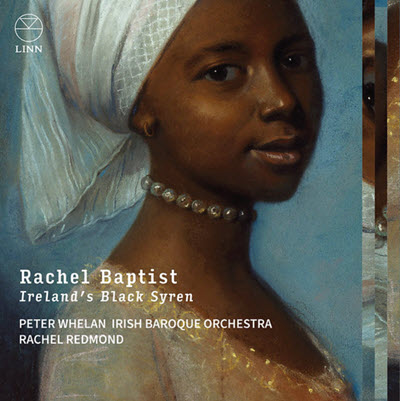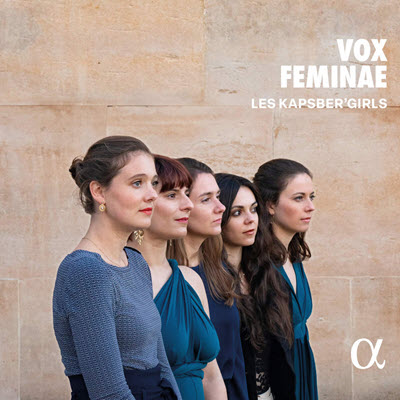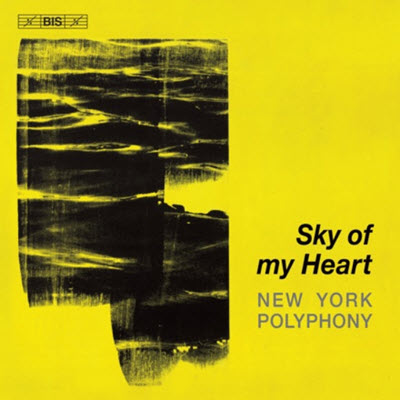by Anne E. Johnson
Published August 26, 2024
Rachel Baptist: Ireland’s Black Syren. Rachel Redmond, soprano; Irish Baroque Orchestra; Peter Whelan, conductor. Linn Records CKD 740
In the fifth release from its Irish Heritage recording cycle, Linn Records has found a fascinating subject. The purpose of the series is to find and pay homage to “neglected figures from Irish musical history.” Peter Whelan, music director of the Irish Baroque Orchestra, outdid himself this time around, unearthing quite a fascinating figure for Rachel Baptist: Ireland’s Black Syren.

Whelan says he learned about the Black Irish soprano Baptist on a Facebook page called “Black and Irish.” Intrigued, Whelan and his colleagues did a few years of research to find out where Baptist performed. The answer was all over Ireland and sometimes in the British Isles. The earliest mention he found of her was from 1750, when she did a student recital in Ireland, billed as a “Black Syren” and described as “Native of this Country.” This despite another writer a few years later, after hearing her in Dublin, fancifully claiming that Baptist (often spelled Baptiste) was “a native of Africa.” This recording attempts to reproduce a particular program Baptist performed in 1767 at the Tholsel (Guildhall) Kilkenny, “probably at the height of her career,” Whelan claims in a short video commentary on YouTube.
“There’s a few holes, but we filled that with other things that would have been performed at the time.” (Also on that concert bill was the popular castrato Giusto Tenducci, the subject of another Whelan recording on the Linn label.)
In the commentary video, soprano Rachel Redmond admits that most of Baptist’s repertoire was new to her, so she enjoyed a dual sense of discovery as she attempted to get into the earlier singer’s head. “There’s an affinity there,” she says. As a Black singer herself who is half Irish and half Tanzanian, Redmond feels “a connection through the centuries.”
Of course, there is no way to know what Baptist sounded like, so all one can do today is consider Whelan and Redmond’s performance on its own merits. And merits it has, in abundance.
The program opens with a three-movement orchestral sinfonia from Handel’s Samson, establishing the Irish Baroque Orchestra’s bona fides as a first-rate period-instrument ensemble. Happily, they get several extended chances to shine on their own, displaying satisfying minor-key grittiness and virtuosic violin variations in Francesco Geminiani’s Concerto Grosso H. 143, Op. 5, No. 12, La Folia. The orchestra also plays three overtures by theatrical composer Niccolo Pasquali, who was known to have been inspired by the dance music of Ireland. His vocal music is represented by two English-language arias from masques. Redmond’s melismas flow effortlessly in the selection from The Triumphs of Hibernia.
The bulk of the vocal works are by Handel. Redmond’s light voice floats through “Mirth, admit me of thy crew,” from the English libretto of L’Allegro, il Penseroso ed il Moderato. “Softly sweet in Lydian measures,” from Alexander’s Feast, is dulcet and subdued. Purcell makes an appearance at the end of the album, in a delicate reading of “Fairest Isle” from King Arthur.
Baptist did not only sing in English, apparently. Her Kilkenny program included a work in Italian — Handel’s secular cantata Alla caccia “Diana Caccatrice.” Both Redmond and trumpeter Darren Cornish Moore sparkle in the aria “Foriera la tromba.” Soprano Aysling Kenny provides the echo (making a pun of “Caccia”) in the final movement.
In his CD booklet essay, Michael Lee posits that as many as 3,000 Black people lived in Ireland in the second half of the 18th century. Knowing that, it’s impossible not to wonder how many were musicians, and how many other interesting personalities have yet to be discovered.
Anne E. Johnson is a freelance writer based in New York. Her arts journalism has appeared in the New York Times, Classical Voice North America, Chicago On the Aisle, and PS Audio’s Copper Magazine. She teaches music theory and ear training at the Irish Arts Center in Manhattan.




